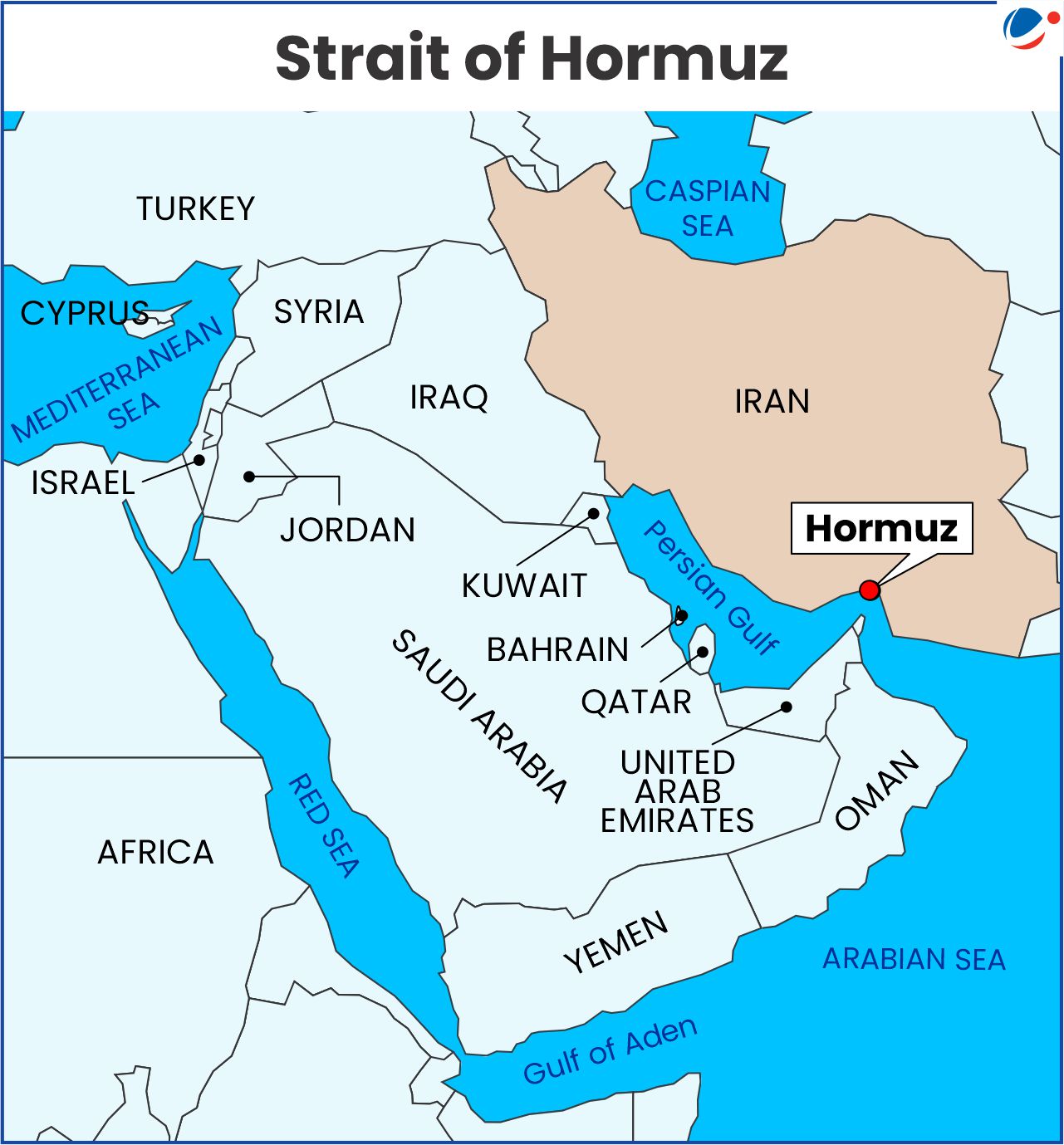Why in the news?
Recently, the Israel Defense Forces (IDF) launched "Operation Rising Lion", a major strike against Iranian nuclear infrastructure and ballistic missile capability.
Key Developments of the conflict
- Israel's strikes: It followed a vote by the IAEA Board of Governors (35 member states) declaring Iran in breach of a 1974 agreement—the first such finding since 2006.
- Israel activated its new aerial defence system 'Barak Magen' or 'Lightning Shield,' against Iran's attack.
- Retaliation by Iran: It launched 'Operation True Promise 3'.
- Participation of United States: It launched "Operation Midnight Hammer", a series of precision airstrikes targeting 3 Iranian nuclear facilities- Natanz (Iran's primary uranium enrichment facility), Isfahan & Fordow.
- US used GBU-57 Massive Ordnance Penetrators (MOP), a precision-guided conventional bomb that can penetrate up to 200 feet below the surface before exploding.
- India's response:
- Urged both sides to avoid any escalatory steps and return to diplomacy.
- India refrained from participating in the Shanghai Cooperation Organization (SCO) discussions Iran-Israel's conflict, which condemned Israeli military strikes.
About 'Barak Magen' or 'Lightning Shield
|
Implications of the Iran-Israel-US Conflict

Global Implications
- Rise in Nuclear Tensions: Pre-emptive military action undermines the credibility of global nuclear non-proliferation norms, established by Treaty on the Non-Proliferation of Nuclear Weapons (NPT).
- Iran suspended cooperation with the IAEA and is planning to withdraw from the NPT, signalling a possible shift towards open pursuit of nuclear weapons.
- Threat to Trade and Energy Security: Iran's Parliament has approved a proposal to close the Strait of Hormuz which could increase global oil and LNG prices and shipping insurance and freight costs.
- 35% of global seaborne oil and 20% of LNG pass through the Strait.
- Disruption of undersea cable infrastructure: Several high-capacity routes like Europe India Gateway (EIG), FLAG (Fiber-Optic Link Around the Globe) etc. run through maritime corridors near Israel, Iran, and conflict-prone zones like the Red Sea, Gulf of Oman, and the Strait of Hormuz.
- E.g., in 2024, three major cables were disrupted in the Red Sea during regional conflict escalation, leading to latency issues across Africa, the Gulf, and South Asia.
- Power Vacuum: A weakened Iran creates a vacuum of influence in Syria, Iraq and Lebanon, which could become the new sites of regional tension.
- E.g., Iran exerted regional influence using its allies in the informal Axis of Resistance.
Implications on India
- Decline in bilateral trade:
- Iran: From $14 billion (2017) to $1.4 billion (2024) after India halted oil imports under U.S. sanctions.
- Israel: From $11 billion (2022) to $3.75 billion (2024) due to regional tensions.
- Geopolitical Implications: India maintains close ties with both Israel and Iran, requiring careful diplomatic balancing of interests.
- E.g., Israel is a crucial partner in defence and technology, while Iran holds significance for energy security and as a broader gateway to Eurasia.
- Infrastructure and Connectivity Projects: India's investment in projects like Chabahar port, International North-South Transport Corridor etc. for trade and connectivity to Afghanistan, Central Asia and Eurasia will be affected.
- E.g., Iran's missile attacks on Israel's Haifa port disrupted its role in the India-Middle East-Europe Economic Corridor.
- Geopolitical Realignment: The fall of Iran could shift West Asia from multipolarity to US-led unipolarity, reducing space for non-Western powers like India.
- Security of Indian Nationals Abroad: Nearly 28,000 Indians in Israel and 10,765 in Iran face heightened risk due to escalating tensions.
- India launched Operation Sindhu to evacuate Indian nationals from conflict zones in Iran and Israel.
Conclusion
Iranian dimension in India-Israel relations is a complex balancing act that reflects India's strategic autonomy and its need to maintain parallel ties with both countries despite their adversarial relationship. With close ties to both Iran and Israel, India has the opportunity to mediate between the two as their confrontation continues and risks further geopolitical escalation





